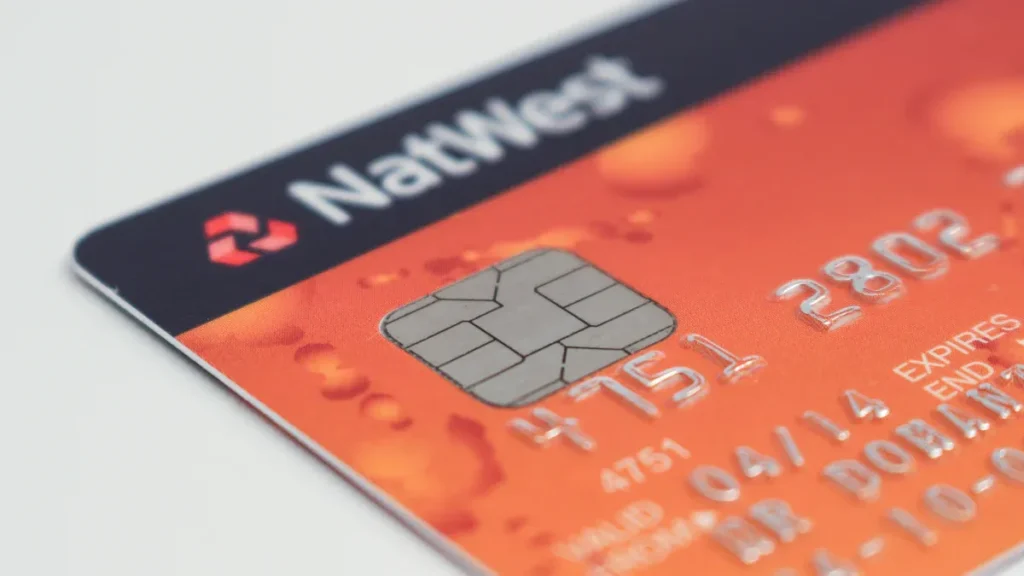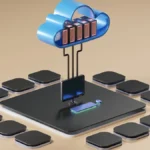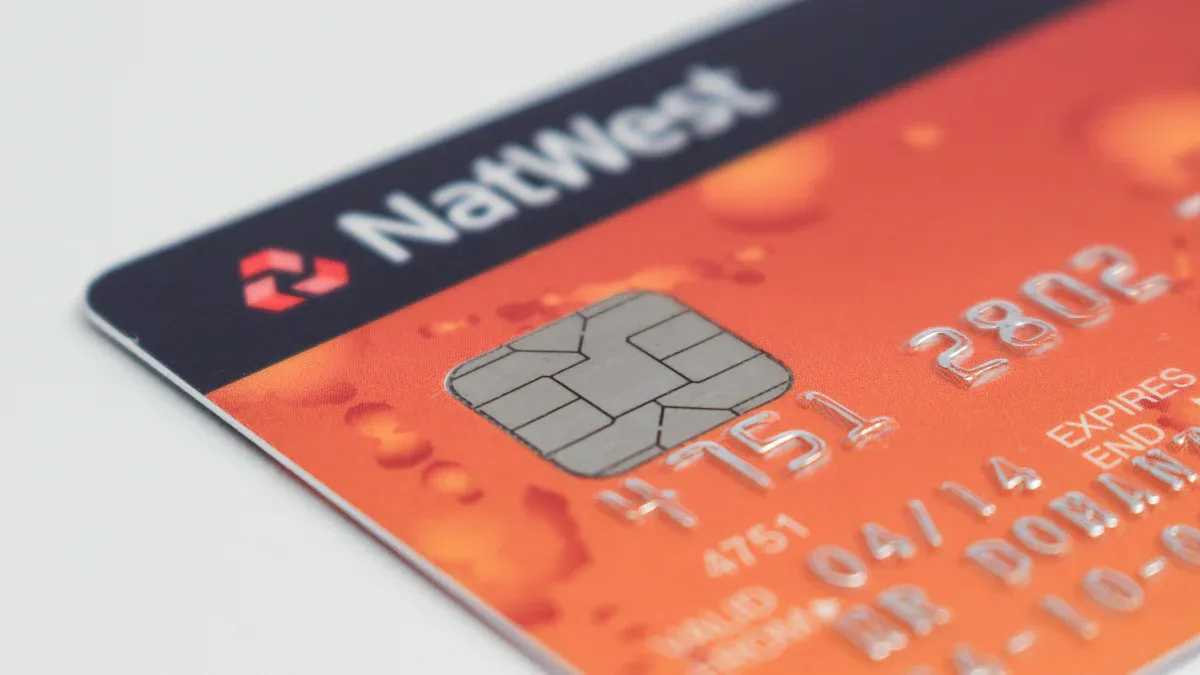
Smart card chips play a crucial role in modern technology, offering secure data storage and processing in compact forms. These chips are integral to smart cards used for payments, identity verification, and data protection. The supply Fudan Micro Smart Card chip Series, including the FM11, FM12, FM13, FM16, and FM17, represents significant advancements in this field. Each series is tailored for specific applications such as contactless payments, secure dual-use functionality, and IoT connectivity. As the demand for smart card technology grows, with the market projected to reach $29.6 billion by 2033, these smart card chips from Fudan Micro are driving innovation and enhancing security across industries, solidifying their importance in advancing smart card technology.
Key Takeaways
-
Fudan Micro smart card chips improve safety and work better in banking, healthcare, and government.
-
The FM12 series works with both touch and no-touch systems. It is great for safe payments and ID checks.
-
FM16 chips are made for IoT use. They have strong coding and a secure area for safe data sharing.
-
The FM17 series gives top security for government and military. It uses national codes to keep important data safe.
-
Smart card tech is growing fast. More people want no-touch payments and better safety like fingerprint checks.
Overview of Fudan Micro Smart Card Chips
FM11 Series: Features and Capabilities
The FM11 series includes Fudan Micro’s contactless smart card chips. These chips work at 13.56 MHz and follow the ISO/IEC 14443 standard. They are great for secure and fast data sharing. Popular models are FM11RF08, FM11RF32, and FM11RF08H.
The FM11 series supports MIFARE Classic encryption, making it NFC-friendly. Storage ranges from 1 KB to 32 KB EEPROM, fitting many needs. These chips are used in transport, access, and campus cards. They are reliable and fast, making daily use easy. They also work smoothly with smart card readers for convenience.
FM12 Series: Features and Capabilities
The FM12 series is a dual-interface chip for secure tasks. It works with both contact and contactless systems. Models like FM1280 and FM1216 meet strict financial and security needs.
The FM12 series uses national encryption like SM2, SM3, and SM4. It also supports RSA and 3DES standards. Certifications include EMVCo and CC EAL4+/5+, meeting PBOC 3.0 rules. The FM12Q model is especially strong and reliable:
-
It passes MIL-STD-810H for tough conditions.
-
Its IP65 rating means it resists dust and water.
-
It uses Qualcomm Snapdragon™ 660 processors for high performance.
-
This processor handles real-time tasks, perfect for IoT uses.
The FM12 series is common in bank, financial, and social security cards. It works well with smart card readers for safe and smooth transactions.
FM13 Series: Features and Capabilities
The FM13 series focuses on UHF RFID chips for long-range tasks. These chips work in the 860-960 MHz range and follow the EPC Gen2 protocol. Models include FM13DT160 and FM13DT640.
The FM13 series has storage from 512 bits to 4 Kbits for different needs. These chips are great for logistics and tracking assets. They help track goods in supply chains and manage inventory. They also work well with smart card readers, improving efficiency.
FM16 Series: Features and Capabilities
The FM16 series shows Fudan Micro’s smart ideas for IoT security. These chips have a Secure Element (SE) to keep data safe. Common models like FM1610 and FM1620 are made for today’s IoT needs.
The FM16 series has Trusted Execution Environment (TEE) and hardware encryption. These features help secure transactions and block unauthorized access. It also follows the GSMA eSIM standard, making it great for smart meters, connected cars, and other IoT devices.
These chips work well where secure communication is needed. For example, smart meters with FM16 chips send data safely to utility companies. In cars, these chips allow safe communication with IoT networks, improving safety and trust.
Note: The FM16 series mixes strong encryption with IoT use, making it a great pick for industries needing both security and connection.
FM17 Series: Features and Capabilities
The FM17 series is made for high-security uses like government and military. These chips use national encryption and special instructions to meet strict rules. Popular models include FM1760 and FM1782.
A key feature of the FM17 series is its approval for national encryption. This makes it perfect for handling sensitive government and military data. It also supports the Java Card platform, letting developers create custom apps.
The FM17 series works with both national and global encryption standards. This makes it useful for local and export markets. It also costs 15%-20% less than similar chips from NXP and Infineon.
Uses for the FM17 series include secure ID cards, encrypted devices, and military data storage. These chips offer top security, keeping important data safe in risky situations.
Tip: Groups needing a secure and affordable solution for critical tasks can rely on the FM17 series’ strong encryption and flexible platform.
Comparative Analysis of Smart Card Chips
Performance and Security Differences
Fudan Micro’s smart card chips are fast and secure. They work well for many uses. Each chip series has strong security to stop fraud. For example, the FM12 series uses multi-factor checks. It combines touch and no-touch systems for better ID checks. The FM16 series has secure parts and hardware locks. This makes it great for IoT tasks needing safe payments.
These chips use strong rules to keep data safe. Digital signatures check if a card is real. Encryption keeps private info safe from hackers. Anti-cloning tools stop fake copies of cards. The FM17 series adds extra layers of safety. It uses many tools to fight new dangers. These chips also follow U.S. rules and global safety standards.
|
Security Feature |
Description |
|---|---|
|
Multifactor Authentication |
Uses more than one way to check identity. |
|
Digital Signatures |
Confirms the card and its data are real. |
|
Countermeasures Against Cloning |
Stops fake copies and keeps cards safe. |
|
Encryption |
Locks private data so only trusted users can see it. |
|
Layered Security Approach |
Uses many safety tools to block threats. |
|
Compliance with Federal Guidelines |
Matches U.S. rules for safe online access to private info. |
Unique Features of Each Series
Each Fudan Micro chip series has special features. The FM11 series is for no-touch uses. It works with MIFARE Classic and NFC, great for buses and schools. The FM12 series has two ways to connect. It meets strict bank rules like EMVCo and PBOC 3.0 for safe payments.
The FM13 series is for long-distance tracking. It uses UHF RFID for shipping and managing goods. The FM16 series is made for IoT safety. It has trusted zones and works with GSMA eSIM. The FM17 series is for top security. It uses national codes and Java Card for government and military needs.
Suitability for Smart Card Applications
Fudan Micro’s chips work in many industries. The FM11 series is best for buses and building access. It offers quick and safe use. The FM12 series is great for banks. It keeps payments and IDs secure. The FM13 series helps track goods in supply chains. The FM16 series protects IoT tools like smart meters and cars. The FM17 series is perfect for government and military. It keeps data safe and stops leaks.
These chips meet the rising need for smart cards. They offer safe payments, stop fraud, and check IDs. Their flexibility and global standards make them a top choice for many uses.
Smart Card Applications Across Industries
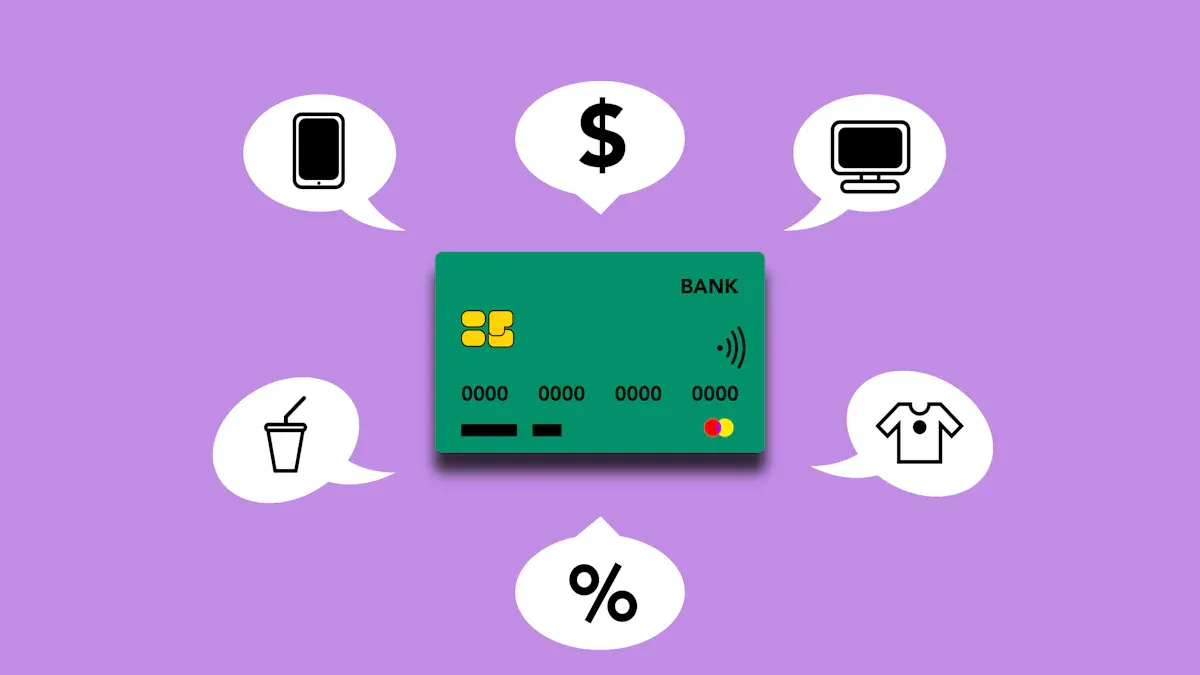
Banking and Financial Services
Smart card chips have changed banking by making it safer and faster. They are used in debit cards, credit cards, and ATMs. These chips store private financial data securely, making them very important. The FM12 series is great for banking because it works with both contact and contactless systems. It follows EMVCo and PBOC 3.0 rules and uses strong encryption like RSA and SM4. This keeps mobile payments and online shopping safe.
More people want smart cards as digital payments grow. Banks need secure ways to handle money. The table below shows why smart cards are helpful in banking:
|
Aspect |
Evidence |
|---|---|
|
Market Demand |
More people use digital payments, so smart cards are needed for safety. |
|
Applications in Banking |
Smart cards are used for debit cards, credit cards, ATMs, and online payments. |
|
Security Features |
They have encryption and secure storage to protect private financial data. |
|
Financial Services Utilization |
Smart cards are used for e-wallets, payments, and secure access to services. |
|
Impact of Fintech |
Fintech growth and digital services make smart cards more popular. |
|
Future Demand |
Digitalization and cyber threats will increase the need for secure payments. |
The FM12 series is perfect for contactless payments and mobile apps. Its dual design works with both old and new systems, making it easy and safe to use.
Telecommunications and NFC Solutions
Telecom companies use smart cards to improve security and service. SIM cards in phones are smart cards that help with secure calls and ID checks. The FM16 series is made for IoT security and works well with mobile networks. It also supports NFC, which is great for telecom needs.
Smart cards have also improved NFC technology. They allow contactless payments and other NFC uses like tickets, access control, and secure data sharing. The FM11 series works with NFC standards and is widely used for these tasks. The table below shows how smart cards improve telecom services:
|
Improvement Type |
Percentage Improvement |
|---|---|
|
Reduction in check-in time |
50% |
|
Increase in guest satisfaction scores |
40% |
|
Improvement in energy efficiency |
30% |
|
Reduction in maintenance-related complaints |
25% |
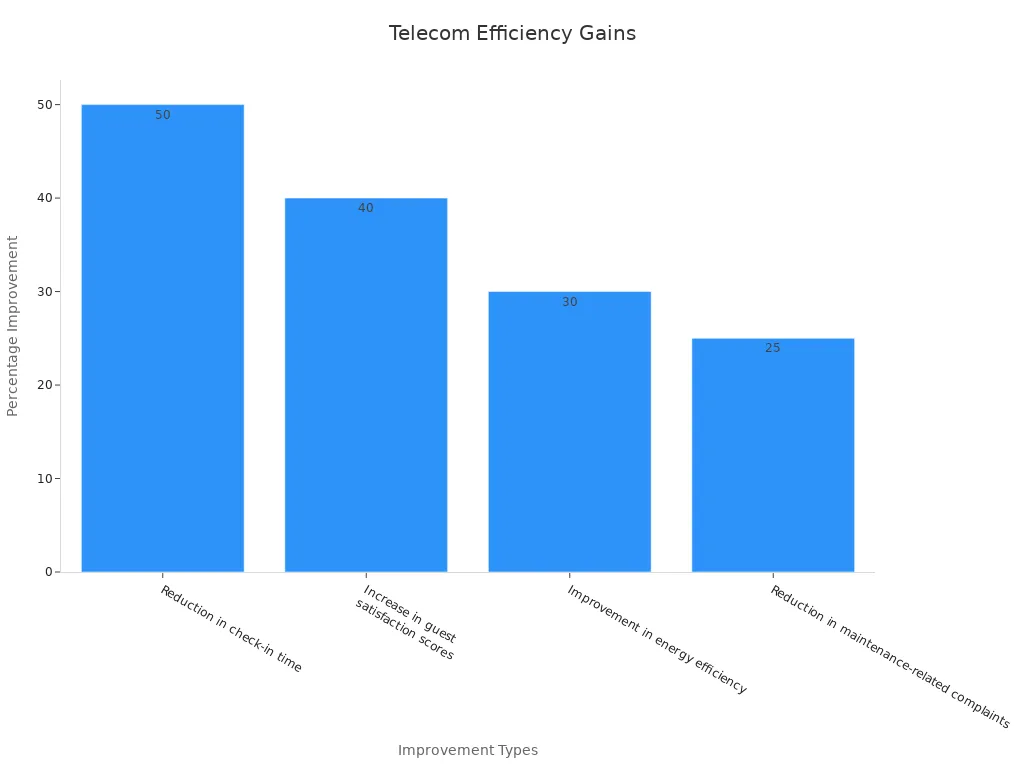
Over 5.6 billion smart cards have been shipped for telecom uses. This shows how much NFC and smart cards are helping the industry grow and improve.
Healthcare and Medical Records
Smart cards are very useful in healthcare. They store medical records, insurance info, and ID details safely. The FM17 series is great for healthcare because it uses strong encryption and follows national security rules.
These cards make healthcare better by keeping patient data safe and easy to access. They help doctors and nurses check IDs and follow privacy laws like HIPAA. Smart cards also allow mobile payments for medical bills, making things faster and easier.
NFC technology has made smart cards even more helpful in healthcare. Patients can use NFC apps to see their records, book visits, and pay bills. The FM16 series keeps these apps secure, protecting patient data from hackers.
Smart cards are now a key part of healthcare. They keep records safe, improve care, and make payments easier. Their contactless features and strong security make them a must-have for modern hospitals and clinics.
Government and Public Sector
Smart card chips have changed how governments handle ID checks and services. These chips keep data safe and make public services work better. Governments use them for national IDs, voter lists, and secure building access.
The FM17 series is great for government tasks. It has strong encryption and meets national security rules. These chips protect sensitive data and ensure secure ID checks. For example, e-passports with these chips store biometric data safely. This makes border checks faster and more secure.
|
Application Sector |
Benefits of Smart Card Chips |
|---|---|
|
Government and Public |
Safe access, ID checks, and better service delivery |
|
Banking and Finance |
Secure payments and data protection |
|
Transportation |
Contactless ticketing and access control |
Smart cards also improve public welfare programs. They ensure benefits go to the right people and reduce fraud. The FM17 series works with Java Card technology. This lets governments create custom apps for better service.
Tip: Governments needing secure and affordable ID solutions can trust the FM17 series for its strong encryption and flexibility.
IT and Enterprise Security
In IT and businesses, smart card chips help protect data and systems. They manage digital IDs, secure files, and allow safe transactions. The FM16 series, made for IoT security, is perfect for businesses needing strong data safety.
Smart cards boost security with PINs, encryption, and multi-factor checks. They act as ID cards, store personal info, and work as digital keys. For example, employees use them to enter secure areas, log in, and lock files.
Benefits of smart cards in IT and business include:
-
Use as ID cards, credit cards, or info storage tools.
-
Extra safety with PINs and auto-lock after wrong attempts.
-
Work as digital keys for offline access to places and data.
-
Encrypt and decrypt files, avoiding unsafe devices.
-
Multi-factor checks for safer transactions.
The FM16 series has Trusted Execution Environment (TEE) and hardware encryption. This makes it great for businesses needing top security. It also supports GSMA eSIM, helping secure IoT devices like smart meters and cars.
Note: Businesses can improve security by using smart card chips like the FM16 series, which mix strong encryption with IoT features.
Advantages and Limitations of Smart Card Chips
Benefits of Fudan Micro Smart Card Chips
Fudan Micro smart card chips have many useful features. They use strong encryption to keep data safe during transactions. These chips follow global standards like ISO/IEC 14443 and EMVCo, making them work for many tasks. They can be used with both contact and contactless systems, which makes them easy to use. For example, the FM12 series is great for banking because it allows secure payments and ID checks.
These chips are also very durable. Models like the FM12Q can handle tough conditions, making them reliable in hard environments. They are also affordable, which helps companies get good quality without spending too much. These features make Fudan Micro smart card chips a smart and dependable choice for modern uses.
Challenges and Limitations
Even with their benefits, smart card chips have some problems. One issue is that they might not stop all advanced cyberattacks. Encryption methods like RSA and SM4 are strong, but new threats need constant updates to stay safe. Another problem is the high cost of starting a smart card system, which can be hard for small businesses.
Older systems may also have trouble working with these chips. For instance, some old setups might not support advanced features like dual-interface use. Also, needing external smart card readers can make them less useful in some cases. Fixing these problems needs teamwork between makers and users to improve the technology.
Comparison with Other Smart Card Technologies
Fudan Micro smart card chips are better than many other options. They support national encryption standards like SM2 and SM4, which are great for areas with strict security rules. Other brands like NXP and Infineon focus more on global standards, which might not work as well locally.
The FM17 series is made for high-security tasks and costs 15%-20% less than similar chips from competitors. Fudan Micro chips also offer more features, like UHF RFID in the FM13 series, which many other brands don’t have. These differences show why Fudan Micro smart card chips are a great choice in a competitive market.
Future Trends in Smart Card Technology
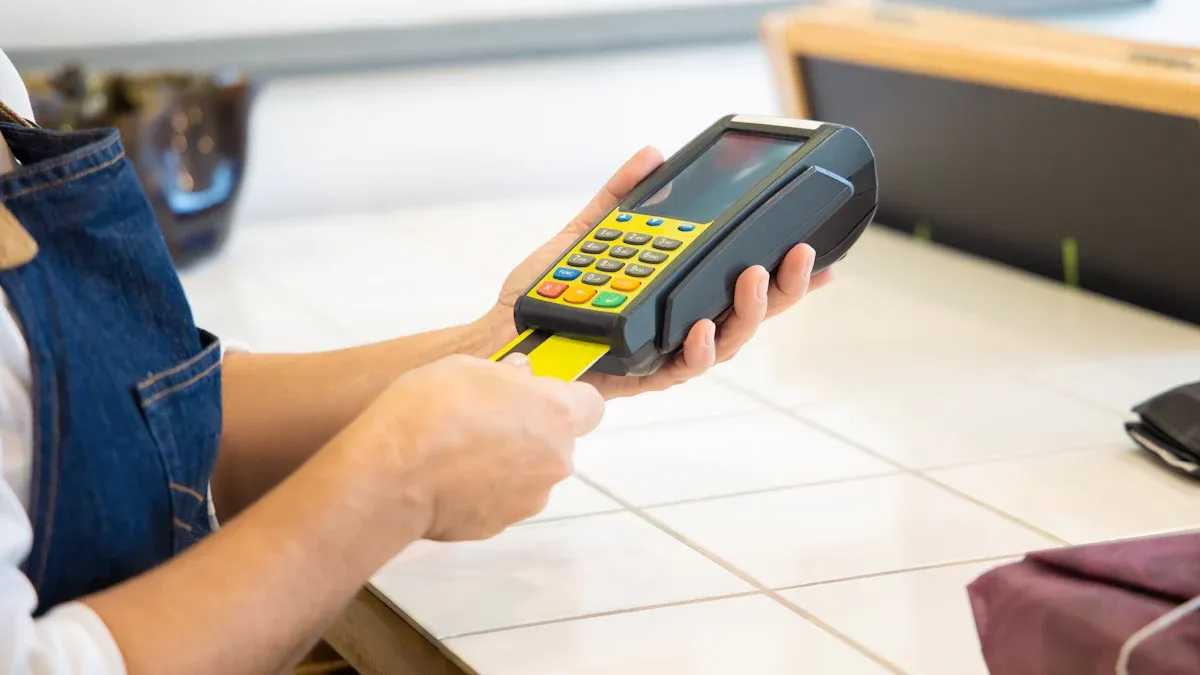
New Ideas in NFC and Contactless Solutions
NFC technology is changing how we use smart cards. More devices now have NFC because people want quick and safe payments. By 2024, the global NFC market could reach USD 30.85 billion. From 2025 to 2030, it may grow by 12.3% each year. This shows how popular contactless payments are becoming. They make life easier for users. Also, 85% of companies plan to use NFC to connect better with customers.
The NFC Forum has a new idea called “NFC Multi-Purpose Tap.” With one tap, users can pay, join loyalty programs, or buy tickets. This makes daily tasks simpler and more enjoyable.
|
Metric |
Value |
|---|---|
|
USD 100,591.84 million |
|
|
CAGR (2024-2034) |
14.70% |
Digital wallets and wearable payment tools are also growing fast. As more people use smartphones, NFC will help make mobile payments easy and safe.
New Uses for Smart Cards
Smart cards are now used in many new ways. In South Africa, grocery shopping data helps decide if someone can get credit. This has helped 3.2 million people get loans, showing how smart cards can help more people financially. In healthcare, smart cards store and manage health data. This helps doctors give better care and run hospitals more smoothly.
Transportation is also using smart cards. By combining smart card data with other info, cities can improve buses and trains. These new uses show how smart cards solve problems and make life better.
-
Financial Inclusion: Using shopping data to give loans.
-
Public Health: Keeping health records safe and organized.
-
Urban Planning: Making public transport work better.
Future of Smart Card Chips
Smart card chips will keep improving with new technology. As NFC and IoT grow, chips will add features like fingerprint checks and blockchain security. These updates will protect data and make using smart cards easier.
Contactless payments are expected to grow a lot. By 2033, this market could be worth USD 39.6 billion, growing 10.0% each year from 2025 to 2033. This shows people want safer and easier ways to pay. Smart card chips will also help countries move away from cash by using better payment tools like tokenization.
|
Metric |
Value |
|---|---|
|
Market Value in 2024 |
USD 16.8 Billion |
|
Projected Market Value by 2033 |
USD 39.6 Billion |
|
CAGR (2025-2033) |
10.0% |
Smart cards will work better with phones and wearable devices. These changes will keep smart card chips important for safe and smooth digital payments.
The FM11, FM12, FM13, FM16, and FM17 series show Fudan Micro’s smart card progress. Each series is made for different needs. They work in areas like transport and government security. Special features include dual-interface use, UHF RFID, and IoT safety. These make the chips useful in many industries.
Smart cards are changing how we do things. They make systems safer and easier to use. By 2022, over 80% of U.S. card transactions used EMV chips. In healthcare, 45% of providers said smart cards improved patient satisfaction. They help keep medical data safe and easy to access.
The future of smart cards looks exciting. EMV cards with fingerprint checks will make payments safer. Mobile wallets are becoming popular, especially with younger people. New rules like PSD2 push for stronger security. These changes show how smart cards will solve new problems in a digital world.
What makes Fudan Micro smart card chips special?
Fudan Micro chips are unique for their strong encryption and dual-use design. They follow global rules and fit specific needs like IoT, NFC, and government tasks. Their low cost and toughness make them useful in many fields.
Do Fudan Micro chips work with older systems?
Yes, most Fudan Micro chips can work with older setups. For example, the FM12 series supports both touch and no-touch systems. This helps them fit into old systems while adding new safety features.
Which industries use Fudan Micro chips the most?
Banks, hospitals, phone companies, and governments use these chips a lot. They improve safety, allow no-touch payments, and make work easier. For example, the FM17 series protects government data, and the FM12 series secures money transactions.
How do Fudan Micro chips keep data safe?
Fudan Micro chips use strong tools like RSA, SM4, and 3DES. They also stop copying, check digital signatures, and use multi-step ID checks. These tools keep private data safe from hackers.
Can Fudan Micro chips work with IoT devices?
Yes, the FM16 series is made for IoT devices. It has a Secure Element (SE), Trusted Zones (TEE), and GSMA eSIM support. These features protect data and allow safe communication for devices like smart meters and cars.
See Also
Understanding MC9S12DJ256MFUE Specs for Automotive Use
A Comprehensive Guide to STM32F030C8T6 in Home Automation
Three Key Features of SPC5605BMLL6 and SPC5607BMLL6 ECUs
Fundamental Programming Techniques for MC9S12XD256 Microcontrollers
Three Major Features of R5F64219JFB in Audio Devices
